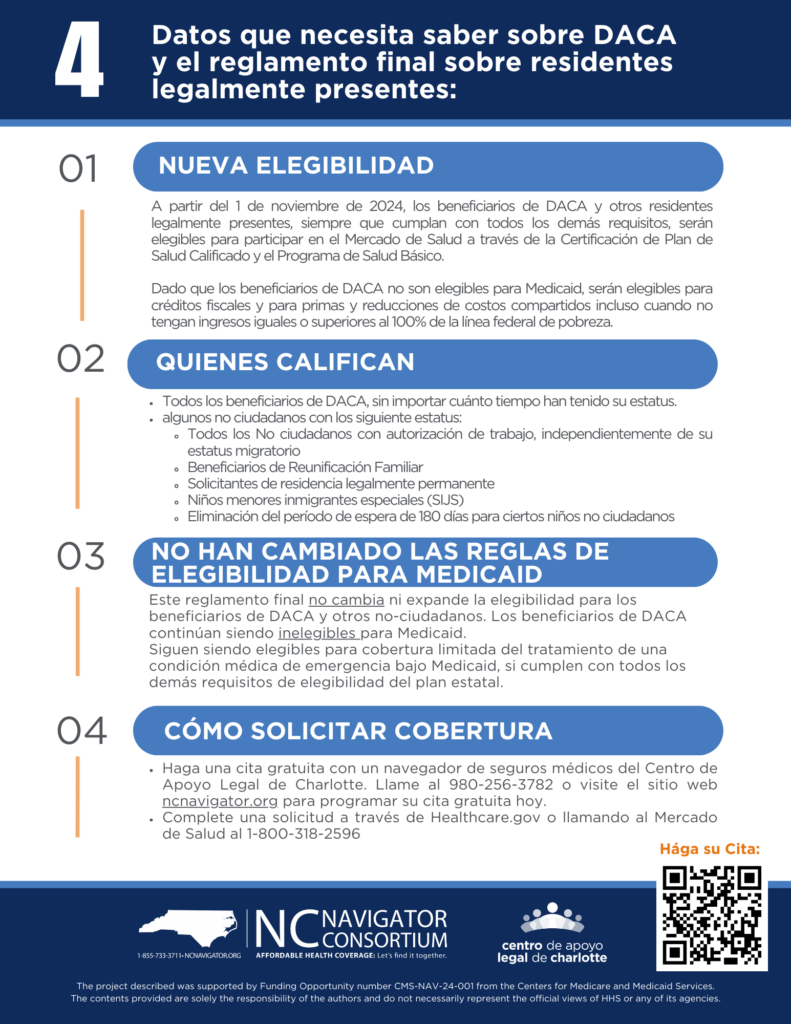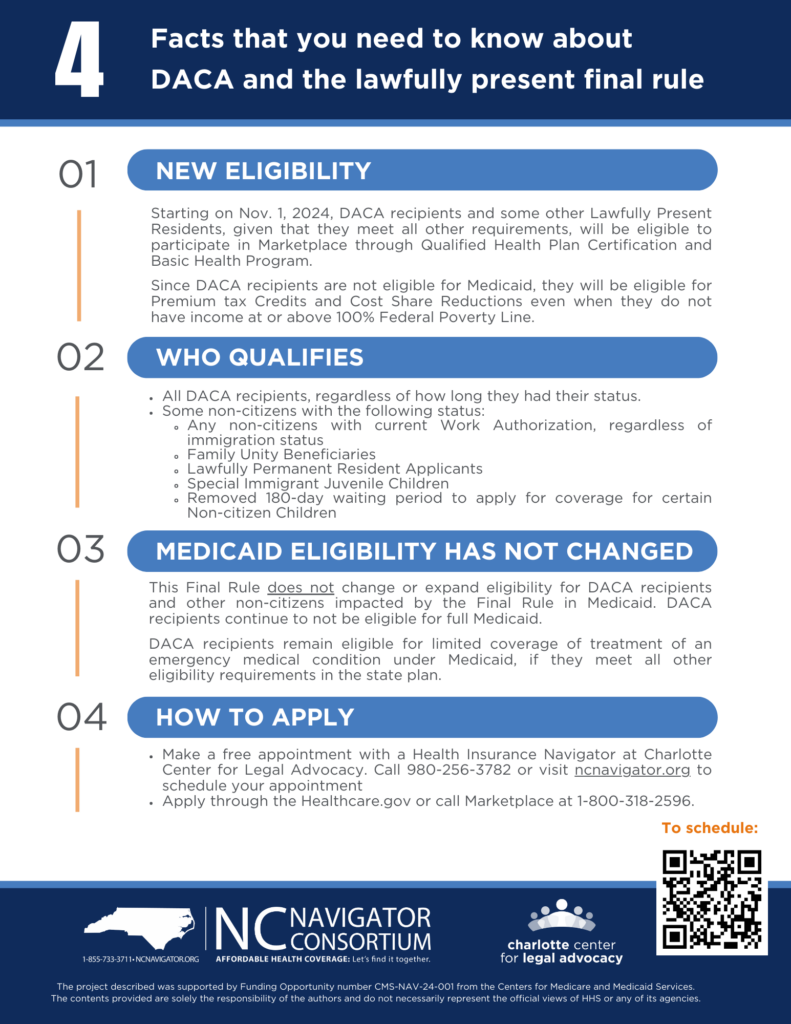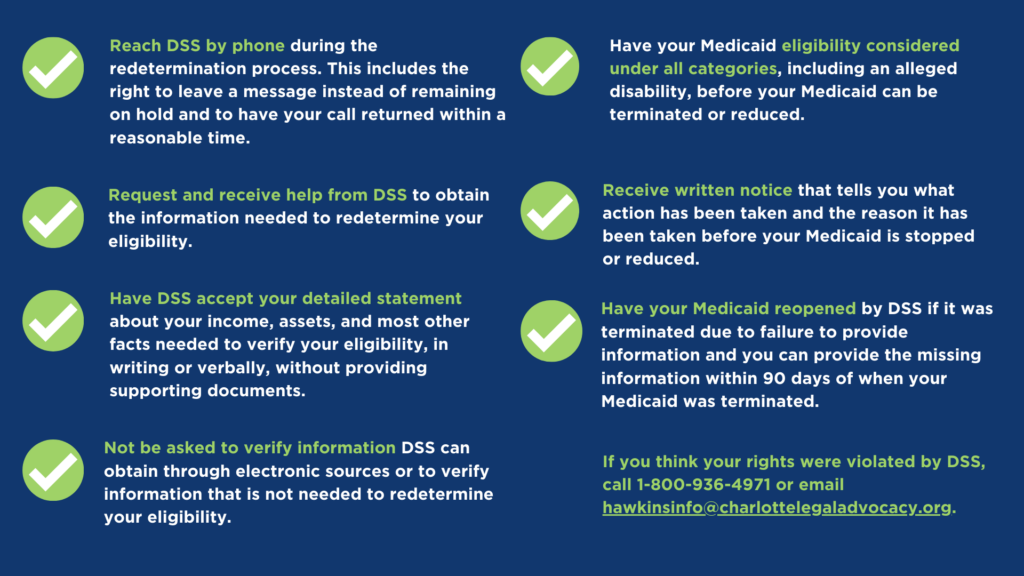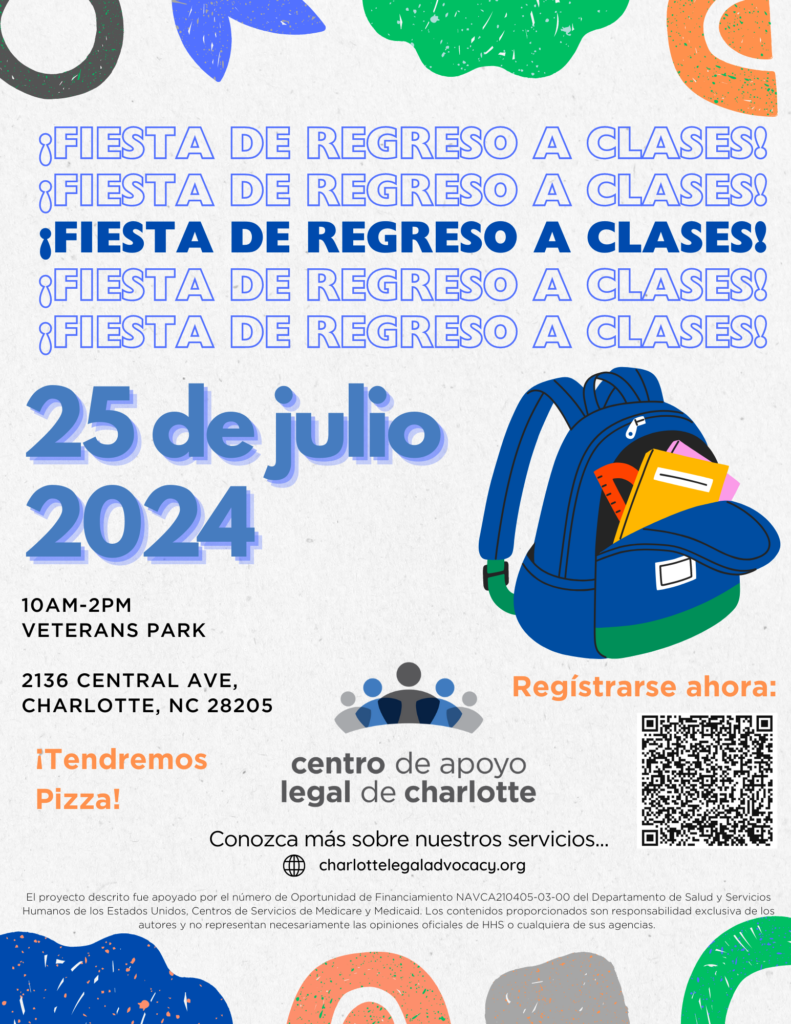When is Open Enrollment for the Health Insurance Marketplace?
Open Enrollment for the Health Insurance Marketplace (Healthcare.gov) happens between November 1, 2024 and January 15, 2025.
Is there still a penalty for not having health insurance?
Effective January 1, 2019, there is no longer a penalty for not having health insurance.
Which health insurance companies will be offering plans in 2025 in Mecklenburg, Cabarrus, and Union counties?
The plans offered for Mecklenburg, Cabarrus, and Union Counties are Aetna, Ambetter, Blue Cross Blue Shield, Cigna, United Healthcare, and WellCare.
I already have coverage. How can I get ready to apply for 2025 Marketplace health coverage?
If you already have a Healthcare.gov account, make sure you are able to log in. If your household size or income has changed, gather supporting documentation such as tax returns from last year or recent pay stubs. You may be required to provide copies of these documents to the Marketplace. Please note plans have changed! You can schedule a free appointment with a Navigator to discuss your options and make sure you are enrolled in the best plan for you and your family.
What happens if I don’t sign up?
If you can afford health insurance but choose not to buy it, you may face high out-of-pocket costs if you have a medical emergency or need to visit a doctor. Use the window-shopping tool on Healthcare.gov to take a look at the plans offered in your area; financial assistance may be available for you and your family. Your premium may be less than you think!
Can I just wait and have my current plan automatically renewed?
Even if you’re happy with your plan and you don’t have any life changes to report (like moving to a new state or changes in your income or household), you should still go back through the application and make sure all your information is up to date to ensure that you are receiving all the financial assistance you are eligible for. You can also take a look at the health plans being offered in your area. You might benefit from a change, and you never know until you compare. You can do this yourself by logging into your Healthcare.gov account or by calling the Marketplace directly at 1-800-318-2596. You can also make an appointment with a navigator to go over your options, so call today!
When is my coverage going to start if I enroll or update my application after December 15, 2024?
If you enroll in a plan or update your application after December 15, 2024, your new coverage will start on February 1, 2025.
I no longer have coverage or lost my coverage during 2024; what are my options?
Even if you lost coverage this year, you may still qualify for financial assistance and can enroll in an affordable health plan for next year. You can log back into your Marketplace account, call the Marketplace, or meet with a navigator to start a new application for 2025.
I am eligible for health benefits at work, but I want to see if I can get a better deal on the Marketplace. Can I do that?
Yes, you can always shop for coverage on Healthcare.gov, assuming you meet other eligibility requirements. However, if you have access to affordable job-based coverage through your employer or your spouse’s employer, you may not qualify for financial assistance in the Marketplace. It is important to have information about your employer coverage offer when you complete a Marketplace application. The Employer-Sponsored Insurance Affordability threshold for 2025 is 9.02% of annual income for the Cost of Family coverage.
I have COBRA, but it’s too expensive. Can I drop it during Open Enrollment and enroll in a Marketplace plan instead?
During Open Enrollment, you can sign up for a Marketplace plan even if you already have COBRA. You will have to drop your COBRA coverage effective on the date your new Marketplace plan coverage begins. After Open Enrollment ends, however, if you voluntarily drop your COBRA coverage or stop paying premiums, you will not be eligible for a special enrollment opportunity. You will have to wait until the next Open Enrollment period. Only exhaustion of your COBRA coverage triggers a special enrollment opportunity.
How can I find out if my doctor and/or prescription medication is in a health plan’s network?
Each plan sold on Healthcare.gov provides a link to its health provider directory and prescription drug formulary so consumers can find out if their health providers and medications are included.
I am not currently working. Although I do not have income, should I still review my healthcare options for 2025?
YES! Although you are not currently working, the Marketplace application asks for information about your anticipated income for the following year. Therefore, you can estimate your potential income for 2025 even if you are not working right now. You can always update your income using the Marketplace application. Navigators can walk you through your options. Schedule a free appointment, in person or virtually, by calling 980-256-3782 or going online to ncnavigator.net.
You may also be now eligible for Medicaid under Medicaid Expansion in North Carolina. The Navigators will be able to assist you in understanding your eligibility and finding the best plan to fit your needs and protect you and your family. Click here to learn more.
What if I need help?
Navigators are available in your area and taking appointments, but we anticipate that appointments will fill up quickly! As always, appointments are free and available at convenient times. Appointments are available at over 20 convenient locations, including our office. Walk-in times are also available at our office Wednesdays 5:30pm-8:30pm and Saturdays 9:00am-3:00pm. Call 980-256-3782 or go online to ncnavigator.org to schedule an appointment today.





